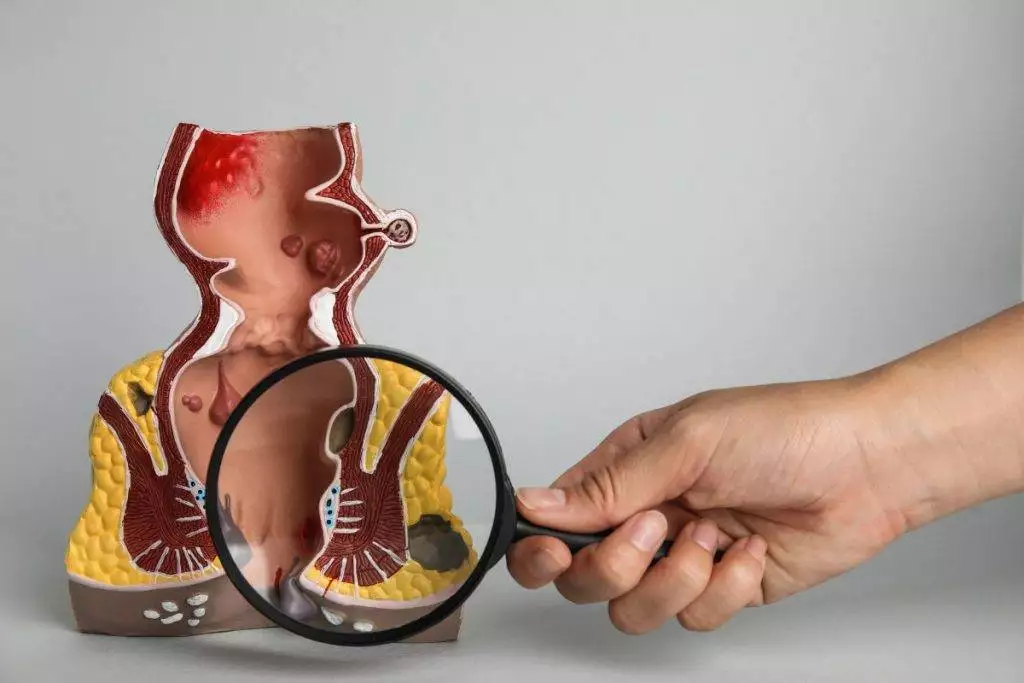Rectal prolapse occurs when the lower rectum protrudes out of the anus. Prolapse can be partial, full, or internal and is commonly associated with a history of chronic constipation and straining.
Symptoms:
Hemorrhoids or prolapse?
Rectal prolapse is not the same as hemorrhoids although the symptoms may be similar. Occasionally, hemorrhoids can be mistaken for partial prolapse. Hemorrhoids occur near the anal opening in the anal canal while rectal prolapse involves a higher segment of bowel within the body. Hemorrhoids rarely cause rectal prolapse.
Treatment Options:
Using an incision in the abdomen, the surgeon pulls the rectum back in place. Using sutures or a mesh sling, he or she anchors the rectum to the back wall of the pelvis (sacrum). In some cases, such as a long history of constipation, the surgeon removes a portion of the colon.
Also done through the abdomen, this procedure uses several smaller incisions. The surgeon inserts special surgical tools and a tiny camera through the abdominal incisions to repair the rectal prolapse.
Rectal prolapse repair through the area around the anus (perineal rectosigmoidectomy). During the more commonly performed form of this procedure (Altemeier procedure),the surgeon pulls the rectum through the anus, removes a portion of the rectum and sigmoid and attaches the remaining rectum to the large intestine (colon).
This repair is typically reserved for those who are not candidates for open or laparoscopic repair.
Another method for repairing a rectal prolapse through the perineum (Delorme procedure) is more typically done for short prolapses. The lining of the rectum is removed and the muscular layer folded to shorten the rectum.

• Have nothing to eat or drink 6 Hours before surgery except for prescribed medications you have been told to take with a sip of water.
• Report 2 hours before the Surgery time (OT Procedure)
• Carry Doctor’s Case Paper on which treatment is written at the time of Admission to Hospital
• Carry Insurance Documents with you to the Hospital before Admission
• Do not apply any lotions, perfumes, deodorants, or Nail polish before surgery
• Take off your jewellery including earrings and piercings
• Don’t shave the area, this will be taken care by Hospital nurse
1. Take pain relieving and other medications as advised. Pain-relieving medication should be taken with food.
2. Follow-up with the doctor after a period of 10 days.
3. Eat a healthy diet and drink plenty of non-alcoholic and non-caffeinated drinks.
4. Do not operate any machinery, or lift any heavy articles after Surgery
5. Rest for a few days after the surgery is advisable, but keep mobile.
6. It is critical to stay hydrated and maintain a high-fiber diet in order to have easy and painless bowel movements.
7. Warm sitz baths may also help to reduce pain following surgery.
8. It is normal to have some bleeding after surgery, but if a significant amount runs down the leg, a doctor should be informed immediately.
Developed by PRAZONE Web Solutions
Copyright © 2024 All rights reserved by
Dr Pradeep Shriyan